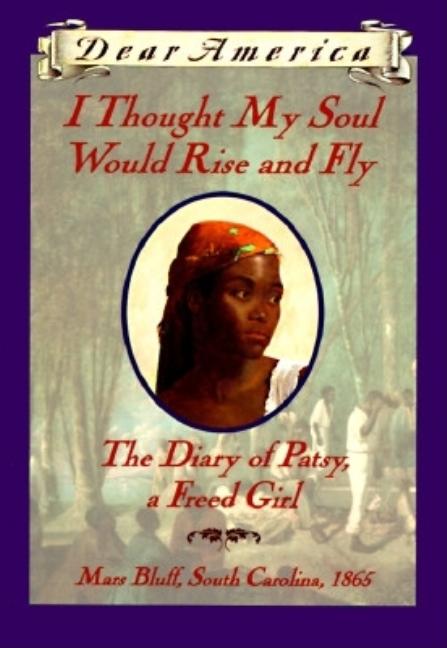Book Description
for I Thought My Soul Would Rise and Fly by Joyce Hansen
From Cooperative Children's Book Center (CCBC)
The Civil War is over, but Patsy doesn't feel free. Little has changed on the plantation for this girl who has been a house slave all of her life. Even as some of the older Black men and women start brave journeys into difficult but hopeful new lives, Patsy is still tending to the needs of Master, Mistress and the house. She has no one with whom to start her own life of freedom. Instead, Patsy continues the work she has always done, waiting for the promised plantation school that she and others look upon as a beacon of hope. Patsy, who learned how to write by surreptitiously listening when the children of the house had their lessons, finds solace in her diary, where she describes these new and confusing times. These diary entries in Patsy's authentic, believable voice comprise a captivating narrative in Joyce Hansen's novel that articulates the emotional weight and historical significance of these times of slow yet sweeping change. (Ages 10-13) Winner, CCBC Coretta Scott King Award Discussion: Writing
CCBC Choices 1997. © Cooperative Children's Book Center, Univ. of Wisconsin - Madison, 1997. Used with permission.


